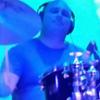
Music
The goal of the Music Department is to enable a broad range of students to explore a wide variety of musical experiences and practices. Supported by their development of musicianship and technical skills, concentrators will acquire a more sophisticated understanding of music in historical and cultural contexts, theory and composition, and performance, while pursuing one of these areas in greater depth.
About the Major
Hamilton’s music concentration is very flexible and the music community vibrant, with abundant opportunities for students to create and perform. In addition to courses in music theory and history, private lessons, and various ensembles, the curriculum includes courses in world music, music and film, folk and country music, opera, the history of jazz, jazz arranging, composition, conducting, and music technology. Students can explore the state-of-the-art digital music studio, play in our Javanese gamelan, or hear legendary musicians share their experiences in our Fillius Jazz Archive.
Detailed information on courses, ensembles, lessons, facilities, and concentration requirements can be found on the Music Department Details website.
Students Will Learn To:
- Demonstrate active listening skills from among a wide variety of musical experiences and practices
- Make links between various musical styles and their historical and cultural contexts
- Demonstrate proficiency in various theories of music
- Display skills in making music through performance, composition, recording, or production
A Sampling of Courses

Conducting
The elements of conducting, including baton technique, aural perception, rehearsal techniques and score study (both instrumental and choral).
Explore these select courses:
This course explores the nature of silence in literature and music as a way to understand how sound, or lack thereof, came to shape modern Europe. We will discuss the history of silence as a philosophical concept, as a response to crisis, alienation and negation, gendered muteness, as well as the aesthetics of dissonance. Literary and musical selections include Boethius, Dante, Petrarch, Gaspara Stampa, Hugo von Hofmannsthal, Robert Musil, Arnold Schoenberg, Theodor Adorno, Eugenio Montale, Anna Banti, Alda Merini, Luigi Nono, Ingeborg Bachmann, George Steiner.
Intensive study of music theory topics, analytical techniques, and compositional approaches applied to common musical forms and styles from different traditions, including Western classical music, popular, jazz, film, theater, and selected world music. Selected repertoire will emphasize 20th- and 21st-century practices.
Meet Our Faculty
Heather Buchman
Chair and John L. Baldwin, Jr. Professor in Music, Acting Chair of Dance and Movement Studies
orchestral repertoire and conducting; ballet and opera conducting; trombone and low brass; solo performance; 20th- and 21st-century music
Musical theater, popular music, Latin American music, 20th- and 21st-century music, and popular-classical crossovers
Choral repertoire and conducting; phonetic transcription of Afrikaans choral music; group vocal technique; choregie and interdisciplinary ensemble performance; text-painting in a cappella music; children’s choir composition; equity, diversity and inclusion in the choral literature canon
acoustic and electro-acoustic composition; post-tonal analysis; audio programming; algorithmic composition; mobile platform development of audio applications
Jazz, composition, jazz pedagogy, jazz pedagogy in European Sinti communities
Dolly Parton; American folk and traditional musics; banjo, music and film; medieval and renaissance music; music and gender
Music and war; music and propaganda; World War II France; music by prisoners of war
Jazz percussion
jazz guitar
violoncello
keyboard and organ; keyboard harmony
flute
percussion
folk guitar
voice
bass
Bassoon
clarinet
oboe
classical guitar, fingerstyle guitar, solo and chamber music performance, guitar pedagogy, 20th-21st century music
jazz piano
piano
voice
trumpet
Monk Rowe
Joe Williams Director of the Fillius Jazz Archive and Lecturer in Music (Saxophone)
Jazz history, Saxophone ensemble
piano
piano
violin and viola
Classical and musical theater voice
voice
harp
Faces & Spaces

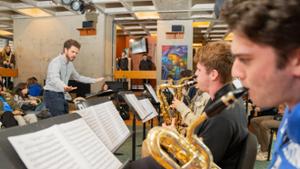
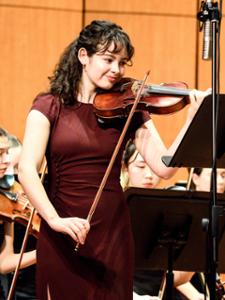
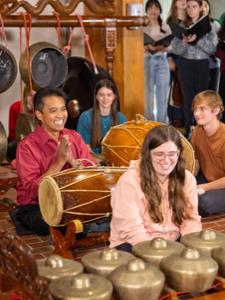
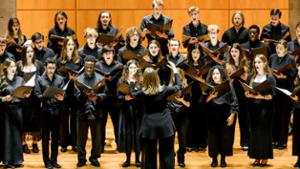
Careers After Hamilton
Hamilton graduates who concentrated in music are pursuing careers in a variety of fields, including:
- Sound Design, WHYY-FM, Philadelphia
- Director of Finance, American Composers Forum
- Professor of Music and Music Technology, California State University San Marcos
- Conductor/Artistic Director, Indianapolis Opera
- Pediatric Dentist
- Violinist, American Ballet Theatre
- Senior Manager Digital Products, Los Angeles Times
- Executive Director, New Hampshire Humanities Council
- Assistant Professor of Music-Voice, Crane School of Music
- Senior Vice President, Bank of America
Explore Hamilton Stories

Fourth Season of Jazz Backstory Launched
Monk Rowe, the Joe Williams Director of the Jazz Archive and lecturer in music performance (saxophone), recently announced the completion of Season 4 of the Jazz Backstory podcast.

Hamessley Discusses Dolly Parton in Atlas Obscura Podcast
“Dolly Parton’s Dreambox,” on The Atlas Obscura Podcast, features an interview with Lydia Hamessley, the Eugene M. Tobin Distinguished Professor of Music.
Contact
Department Name
Music Department
Contact Name
Heather Buchman, Chair
Clinton, NY 13323







